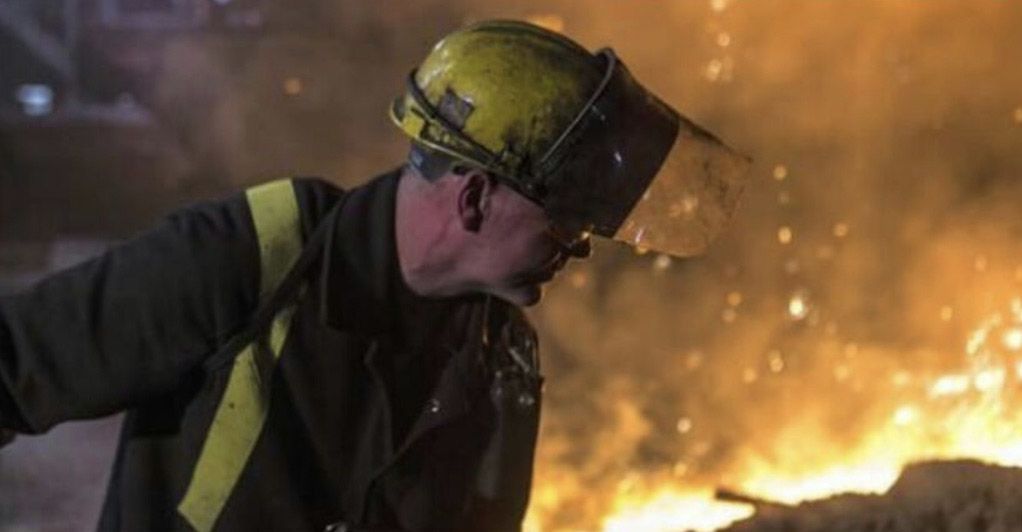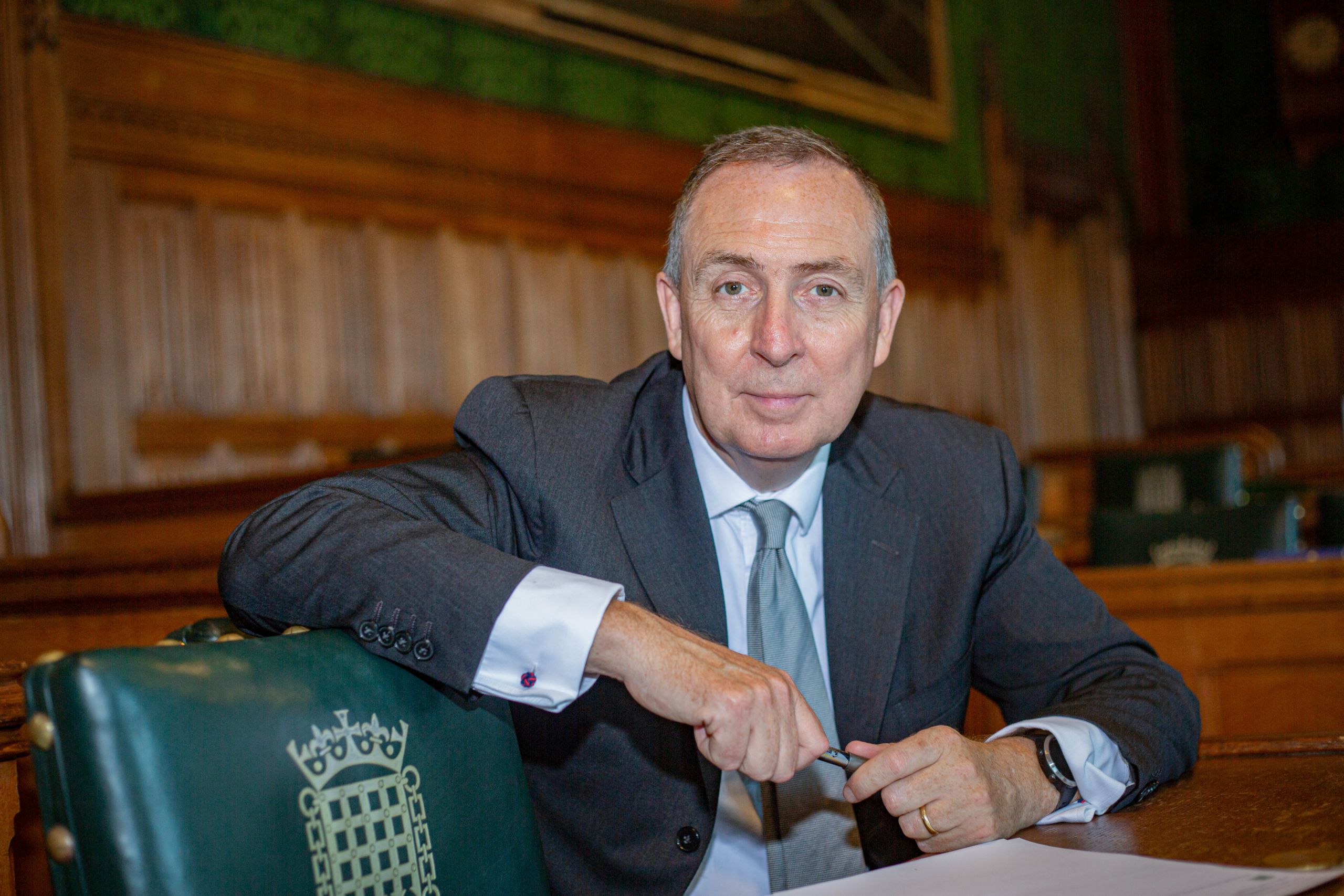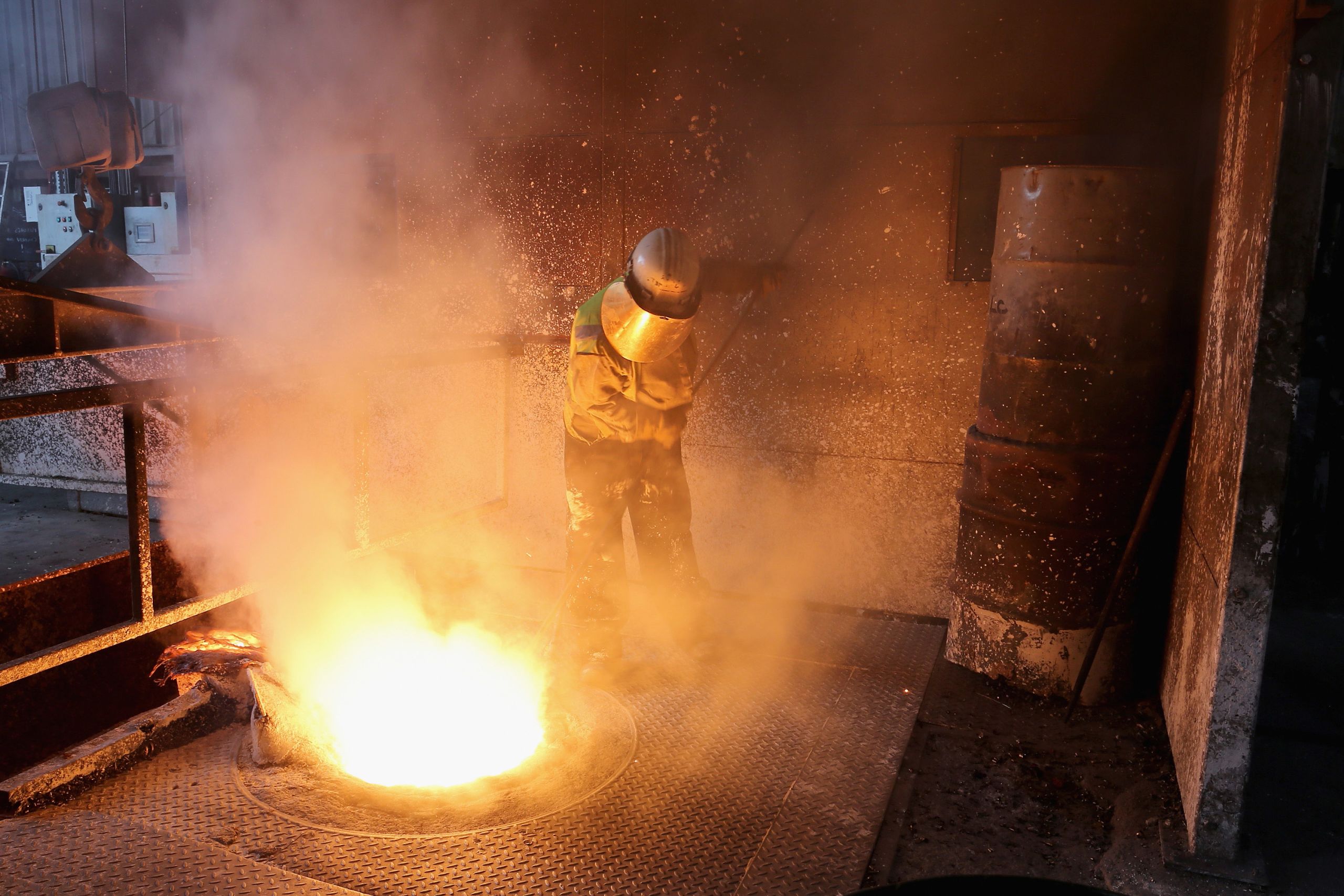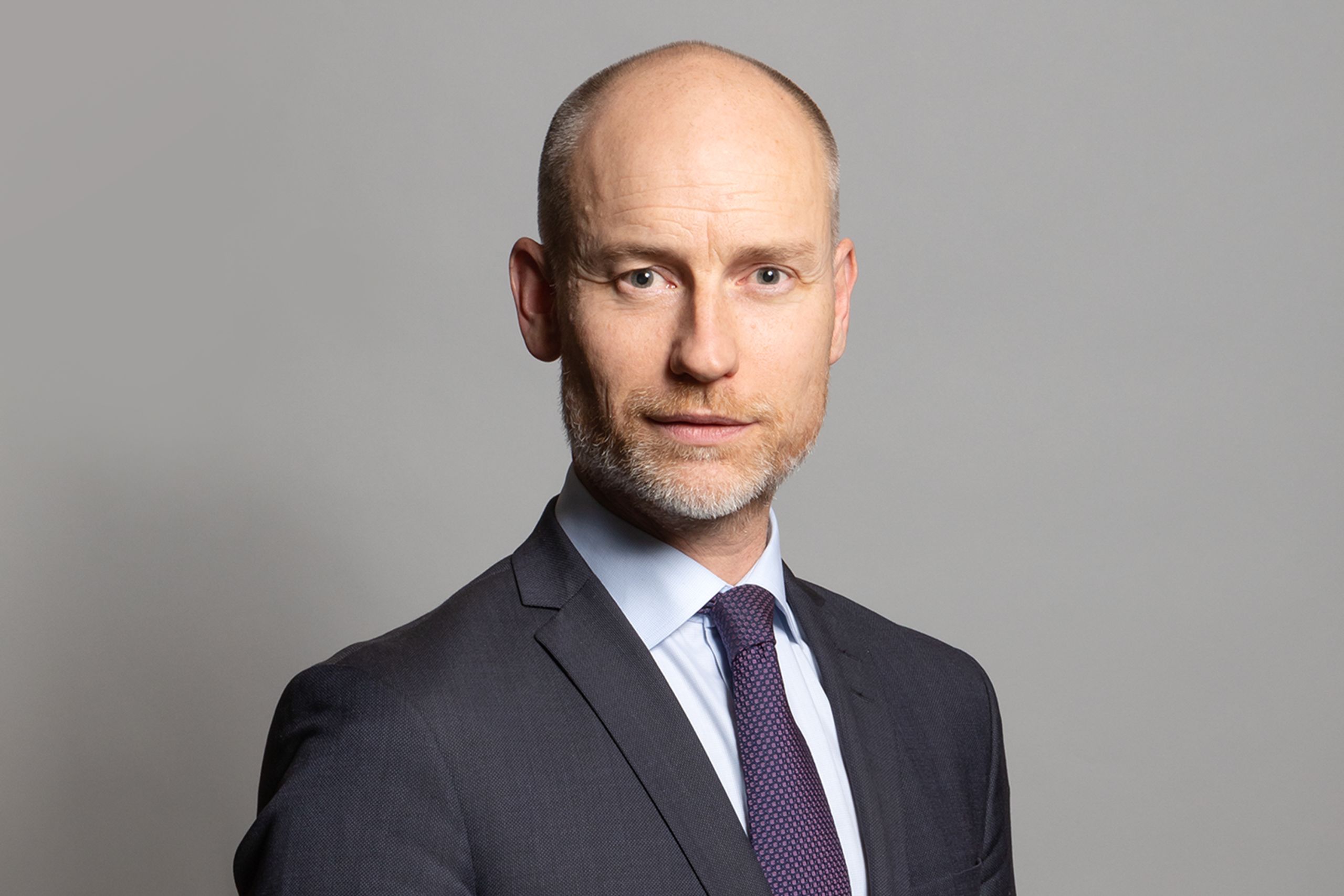British Steel:
Lessons learned from the defined benefit transfer advice debacle

Learning from British Steel
The British Steel Pension Scheme scandal has barely been out of the headlines since the news broke in 2016 that the £14bn scheme, which had 122,000 members across England, Wales and Scotland, was in trouble.
Members were advised to seek financial advice about their pensions; on top of this, some workers were facing redundancy after Tata Steel announced 1,050 job cuts in the UK in January 2016, including 750 at Port Talbot.
This made people especially vulnerable – a point raised by Keith Richards, chief executive of the Personal Finance Society – and this should have been factored into the advice process. It was not.
By late 2017, sponsoring employer Tata Steel UK implemented the Time to Choose consultation. By early 2018, 97,000 members had responded. Some 86 per cent opted for the new scheme. A further 14 per cent (roughly 30,000) fell into the Pension Protection Fund.
But this was too late for the 7,700 workers in England and Wales who had seen a financial adviser, and who had transferred out of the defined benefit scheme at the IFAs' recommendations.
For some, the decision will have been right; but many have seen their pension values destroyed, because the advice to transfer out was wrong.
Steve Timms, chairman of the Work and Pensions Committee, said: "Some may never get their money back."
These people were all vulnerable. Most were not financially sophisticated to grasp complicated pensions planning, and all were anxious about their futures.
This guide, comprising four features, revisits the background to BSPS and how some industry stalwarts attempted to intervene in 2017; explores the regulatory and legislative action taken between late 2017 and early 2019; asks what went wrong with the response; and analyses some ways to prevent a similar scandal.
It also features a case study from a Scunthorpe steelworker, a video from key spokespeople and a look at Rolls-Royce's recent trustee action in similar circumstances as a best-practice example.
The guide qualifies for an approximate 60 minutes' worth of CPD, which you can bank at the end.





Images by Kateryna Babaieva via Pexels
Images by Kateryna Babaieva via Pexels

Kateryna Babaieva
Kateryna Babaieva

Picture from Pixabay via Pexels
Picture from Pixabay via Pexels

Kateryna Babaieva
Kateryna Babaieva
I was scared. We both were. We were frightened of losing everything.
Sitting in a hotel foyer, with people walking past them, Graham and Wendy Allen said they felt nervous and exposed.
They looked at the forms in front of them and heard the adviser repeating the warning against letting their pension "fall into the PPF". It was their first – and only – meeting with the adviser, and their first ever experience of independent financial advice.
“We didn't know what the PPF was. It sounded terrible. Nobody explained the PPF would actually help secure my benefits. All I kept hearing was I would lose 10 per cent automatically,” Graham says.
“The way the PPF was presented to us was like it was the worst thing in the whole wide world. When I left that meeting with the adviser and got to the hotel car park, I turned to Graham and said, ‘We have to take [the pension] out or we lose everything’," Wendy adds.
"In the end," says Graham, "I lost far more than that by transferring out." In fact, had he received proper advice about the new scheme (British Steel Pension Scheme 2) that was being created, and been given a proper analysis on what he could get if he transferred to the new scheme, he would have been significantly better off.
Graham, who has worked at the Scunthorpe Steelworks for 38 years, was given notice of redundancy in 2015. In May 2016, he was sent a letter saying the DB pension scheme was at risk of closing.
He comments: “It was a serious blow. The unions had told us everything would be okay. Suddenly, it wasn’t."
Over the past decade, the corporate issues affecting the UK steel industry caused great uncertainty for steelworkers, and Graham and Wendy say this alone made them vulnerable, let alone the fact they felt pressured to make complicated financial decisions in a short time frame.
Because the adviser – who has since closed up shop – frightened them away from the PPF and did not properly advise them about the BSPS2, Graham’s pension value has been hit by a loss of more than £200,000.
The unions had told us everything would be okay. Suddenly, it wasn’t.
He says: "Our pension was all everyone talked about for months on end – you have to take it out or lose 10 per cent. When you see bosses and those good with money taking theirs out, it made us think we should.
“The trustees and the adviser both said my pension would default to the PPF if I did nothing, so I had to act.
"I was told we could move it into the new BSPS2, but this option was not explained to me. I didn’t know about the benefits or valuations of the new scheme. The whole conversation centred on ‘not wanting to fall into the PPF’ and that was presented as the worst possible result.”
In June 2017, after he transferred out, his pension carried a valuation of £234,000, minus the charges he paid to the old adviser and associated fees.
He says he even had to get the transfer valuation himself – the adviser didn’t do it for him. Graham tells a story about his friend and colleague, who opted to go to the new BSPS2.
This colleague, whose pension had been valued in May 2017 at £227,000, received an upward valuation from the new scheme after June: it was now £530,000.
“I went away for a week after transferring out, and when I came back, his pension was worth twice the amount. Double the value of mine,” Graham recalls.
He was “gutted”, especially as he had asked about the recalculations that were being done for pension valuations under the new BSPS2, and had been told by the adviser that it would be insignificant at best – “a 1 per cent cap on any uprating. This was what they were saying about the new scheme. It wasn’t true”.
So instead of being able to retire at 57 as he had planned, enjoying the ‘gift’ years the former scheme used to give to staff, which enabled them to retire early, he is now not expected to retire til 67.
He is now re-employed with Jingye – which bought the Scunthorpe plant in 2020 – working the blast furnaces. “It’s a young man’s job,” he sighs, although at 58 he is in “good health and still strong”.
Widespread issues
Graham is just one of 7,700 BSPS steelworkers, based across England and Wales, who were urged by advisers to transfer out of the old DB workplace scheme to avoid the PPF.
But for Graham and Wendy, every year provides new information that rubs salt into their financial wounds.
In 2018, the PPF announced a buy-in had been secured for the old BSPS (OBSPS). According to the PPF: “The value of the benefits secured by this buy-in for OBSPS members will either be the same or higher than the value of their PPF compensation.
They never gave us any direction about the PPF or the new pension scheme. They never raised any red flags when all these transfer requests came.
“This is encouraging news for the more than 30,000 scheme members, many of whom will in future see an increase in their pension payments above our compensation levels.”
The scheme is now expected to leave the PPF assessment period and complete the buyout with the Pension Insurance Company towards the end of 2021.
None of this helps Graham and Wendy, nor any of the other BSPS members who transferred out through being “terrified” their money would end up in the PPF.
Who is to blame? "The trustees," Wendy says decisively. "They never gave us any help or direction or even basic information about the PPF or the new pension scheme. They never raised any red flags when all these transfer requests came through."
The adviser, too, bears responsibility. “There is no way under normal circumstances I should have been advised to transfer out," adds Graham.
“He didn’t run away with my money, but certainly I was mis-advised. Regardless, it is life-changing advice that has ruined our plans for the future."
They are now working with Al Rush, principal of Echelon Wealth, and law firm Clarke Willmott to help recoup their losses.
We had plans to buy a holiday home or at least to spend several months away each year, escaping the snow and enjoying the sunshine while we were young enough. Now all those plans are gone. Destroyed.
Neither Graham or Wendy have much time for the Financial Conduct Authority and other regulatory bodies, believing them to have acted too slowly since the BSPS scandal came to light. "They’re taking their time. Things are going too slowly and it’s worrying.”
You can hear Wendy choking back her tears as she describes the long working days and physical stresses of the job that her husband is now doing, instead of being able to enjoy a comfortable retirement together.
Clarke Willmott is helping nearly 700 former BSPS members get some form of redress.
The lawyers say the pattern in nearly every single case is similar to Graham and Wendy's: workers being made to panic about the PPF; a failure of the trustees to deliver useful information about the lifeboat fund or what the new scheme would offer; advisers using time-pressure tactics to get clients to sign the transfer form; and the same reasons for transferring being cited in every recommendation, regardless of circumstances.
Has the industry learnt its lesson well enough to prevent a similar transfer scandal happening to another couple like Graham and Wendy?

Graham and Wendy Allen
Graham and Wendy Allen

Graham working the Scunthorpe blast furnace
Graham working the Scunthorpe blast furnace
What lessons have we learned from British Steel?
FTAdviser In Focus examines the history of the BSPS transfer debacle to understand how the pensions industry can work together to prevent history from repeating itself.
How the BSPS scandal unfolded
Late in 2017, Al Rush, founder of advice business Echelon Wealthcare, received a call from a Welsh steelworker anxious about advice he had taken to transfer out of his workplace pension.
“It raised alarm bells,” he says. He asked the man if he knew anyone else in that situation. Within a few weeks, Rush had spoken to several steelworkers, all with a similar story.
They were courted by unregulated introducers, put in touch with advisers and then, over sausage or chicken dinners in Port Talbot’s pubs, urged to transfer out of the BSPS.
Based on his conversations, Rush says: “I knew something had gone badly wrong.” He tweeted if anyone knew a decent lawyer, and someone suggested Clarke Willmott.
Laura Robinson, partner at the law firm, took Rush’s call in 2017: “He sounded excitable, and I thought he was just another IFA with huge claims about something. Still, we agreed to meet him and it soon became clear this was on a big scale.”
Together with Rush, Clarke Willmott met steelworkers. Rush had by then set up the Chive (community, help, information, volunteer and exchange) initiative to help BSPS members get correct information. Many good IFAs stepped in to help. But it was too late for some members.
Initially, Robinson and fellow partner Philippa Hann thought the problems centred on Active Wealth, run by Darren Reynolds. As they dug deeper, they found a “rabbit warren” of dozens of advisers and unregulated introducers, not only advising clients to move out of BSPS but also, once the scandal broke, begging clients not to complain.
New scheme for old
In March 2016, Tata Steel had said it was examining options to restructure the business, which would include decoupling the £14bn DB pension scheme from the company.
In May 2016, the chairman of the trustees wrote to members following a government review of legislation that would allow Tata Steel to create a new scheme: BSPS2.
A ‘no-brainer’ is the phrase I have heard again and again.
Trustees said, if allowed, it would be a significantly better outcome than falling into the PPF, which the letter said was a "poor outcome". That phrase stuck in members’ minds.
Little information was given over 2016 and into 2017. The scheme’s pensions office fielded nearly 4,000 calls a day, but members were told to "get advice".
Advisers pushing transfers early in 2017 told clients the benefits of BSPS2 would not be as good, and any uprating in the new scheme would be 1 per cent or less. This was not true.
But by the time details were known in mid-2017, it was too late for members who had already decided to transfer out. And, as the Time to Choose consultation took place from October 2017 to the Q1 2018 deadline, it became clear many had been misadvised, even though the details of the new scheme had been fully available to their advisers.
Scale of the problem
Some 7,700 of those who took advice ended up transferring out of BSPS, with its guaranteed benefits. The value of the money transferred was approximately £2.8bn, with the average member’s transfer value estimated at £350,000.
Active Wealth admitted in a letter to parliament in 2018 it had approximately 300 BSPS clients, 64 of whom transferred out of the BSPS. Lighthouse, which had a relationship with the unions in Teesside and Scunthorpe, advised 266 workers to transfer out. The number of companies involved grew, as did the caseload hitting Clarke Willmott’s desk.
In the majority of cases seen by Clarke Willmott where members had been advised to transfer out – “a ‘no-brainer’ is the phrase I have heard again and again”, says Hann – the recommendations have damaged clients’ pension values irreparably.
Had they gone into the PPF, they would have had the security of knowing the old BSPS is expected to exit its PPF assessment period this year after a £2bn pension insurance buy-in with insurer Pension Insurance Corporation. This secures the liabilities of more than 30,000 members at or above PPF levels of compensation.
Had they transferred to BSPS2 – the details of which were available by mid-2017 – they would have been better off as, in June 2017, the transfer values were significantly enhanced.
Rush and Clarke Willmott met MPs such as Nick Smith, MP for Blaenau Gwent, and Stephen Kinnock, MP for Aberavon, who helped promote the steelworkers’ cases to parliament and regulators.
Smith says: “In Autumn 2017 I spoke with a family who had been targeted by a pension shark while on holiday at their caravan. I realised something was wrong and they needed advocacy and support. This was the start of an extended involvement in the BSPS case.”
Kinnock says: “One gentleman came into my office and was very upset. In the summer of 2017 I went into the Department for Work and Pensions and discussed the issue at length.”
Soon there was a working party set up to look into BSPS and Smith, Kinnock and others started working more closely together, meeting with Andrew Bailey, the former FCA chief executive, and attending Westminster Hall debates.
Even the former WPC chairman, Frank Field, wrote to the FCA in February 2018 suggesting the FCA may pass evidence on to the police.
BSPS was clearly a massive problem that needed resolutions to prevent similar problems happening again.
![[object Object]](./assets/r5VunqHmkf/2016-05-25t132122z_802585353_lr1ec5p113bbf_rtrmadp_3_tata-steel-2560x1706.jpeg)
Steelworkers at a 2016 protest. Source: Reuters/Neil Hall via fotoware
Steelworkers at a 2016 protest. Source: Reuters/Neil Hall via fotoware
![[object Object]](./assets/Bq55zFBTxy/2019-06-30t100014z_57818050_rc16ef852a10_rtrmadp_3_british-steel-bids-network-2400x1513.jpeg)
Scunthorpe signage 2019. Source: Reuters/Scott Heppell via fotoware
Scunthorpe signage 2019. Source: Reuters/Scott Heppell via fotoware
![[object Object]](./assets/Jt1CtDWXWw/rts2sgx0-2560x1572.jpeg)
Scunthorpe. Source: Reuters/Scott Heppell via fotoware
Scunthorpe. Source: Reuters/Scott Heppell via fotoware
![[object Object]](./assets/0ST0OiOYxx/337948123_1-4-2560x1717.jpeg)
Scunthorpe steelworks. Source: Reuters/Fotoware
Scunthorpe steelworks. Source: Reuters/Fotoware
![[object Object]](./assets/9V7crUY8bp/h_00844734-1-2560x1702.jpeg)
Blast furnace at Port Talbot, Wales. Source: EPA/Newscast
Blast furnace at Port Talbot, Wales. Source: EPA/Newscast
What action have regulators already taken regarding BSPS?
After meetings with working parties who were concerned about the advice being given to steelworkers, the regulator began investigating BSPS DB transfer advice in late 2017.
This resulted in 10 of the leading companies in the transfer debacle halting their transfer advice service.
In 2018, some regained their permissions, such as Mansion Park and County Capital Wealth Management (also trading as Pension Review Service).
Later in 2018, the FCA started collecting data from all businesses with pension transfer permissions, to assess market practices. Following this, many companies left DB transfer business altogether.
In June 2019, the FCA claimed its investigations into the higher-risk advisers who provided advice to BSPS members had helped lead to more than 700 advice companies relinquishing their DB transfer permissions.
We have an issue with the lack of action from the FCA.
The FCA also brought in a ban on contingent charging, which came into force in 2020. This is intended to remove the conflict of interest whereby the adviser would have been paid only if a transfer took place, thus creating a financial incentive to push a transfer.
The FCA has 30 investigations ongoing into suspected serious misconduct by companies and individuals.
The FCA declined to comment, but it has been widely reported that several of the businesses that advised on BSPS are no longer providing advice on DB transfers.
Prevention, rather than cure
Echelon Wealthcare's founder Al Rush welcomes more stringent regulations on DB advice, and more regulatory scrutiny over the DB transfer market.
He has also hailed the “many sensible measures” recommended in the 41-page independent review into BSPS by Caroline Rookes, published in January 2019.
Some of her recommendations have been put into action, such as giving schemes more power to investigate transfers under the Pension Schemes Act 2021 and freeing trustees to provide better information.
But Rush accuses regulators, especially the FCA, of “dragging their feet” during the early part of 2017, when intervention could have happened and prevented clients from getting stung in the first place. "This is a key lesson for the FCA to learn," he says.
He is not alone. “We have an issue with the lack of action from the FCA,” Clarke Willmott's Hann admits. “They did not take enough steps at the start. And the whole process is taking too long.”

Nick Smith, MP for Blaenau Gwent, one of the first members of a working party set up in 2017 to help steelworkers
Nick Smith, MP for Blaenau Gwent, one of the first members of a working party set up in 2017 to help steelworkers
Independent consultant Andy Boyt, who is helping Rush with BSPS cases, agrees many inappropriate transfers could have been prevented with earlier intervention against the advice companies back in 2017, while they were still applying for transfers for their clients.
“Enforcement action must be taken more quickly. To me, these advisers are criminals and the regulators should be locking them up,” adds Rush.
“This makes me boil”, says Blaenau Gwent MP Smith. “It is clear to me criminal action has occurred. I am frustrated with the FCA’s slow movement. I asked the police to get involved; they told me the FCA was the best [agency] to deal with this.”
The FCA declined to comment.
Case load and compensation
Compensation payouts have, so far, been sparse, raising questions about the way in which regulators, the ombudsman and the compensation scheme operate.
In November 2020, the Financial Ombudsman Service ordered advice business Mansion Park to pay out £101,000 in compensation, based on its conclusion the advice offered was an "unbalanced representation" of the client’s options.
The more complex a case is, the longer it will take.
“That’s one case in four years,” says Robinson. “Some steelworkers have been waiting more than two years for their money.”
But as Mansion Park entered liquidation last year (with an ex-director joining First Service Financial as an adviser), a further 20 Mansion Park claims have been passed to the Financial Services Compensation Scheme.
The Fos is looking into 250 BSPS cases, and has answered consumers in more than 100 cases. Not all have gone to a final decision and some cases are with the FSCS.
A Fos spokesperson says: “Complaints only go to a final decision if either party doesn’t agree with the outcome of our initial view.
“When we take on a case, we need both parties to provide evidence. We then need to investigate the complaint to reach a fair and reasonable outcome. This can take time, and the more complex a case is, the longer it will take.
“If either party disagrees with our initial view, it will then need to go to an ombudsman who will issue a final decision and that can lengthen the process.”
The Fos has provided a dedicated BSPS page detailing how consumers can complain.
Are the funds there? Can the FSCS meet it?
Advice company Active Wealth, which owner Darren Reynolds wound up in February 2018, was declared in default by the FSCS in March 2018 – again, claims against his business will end up at the FSCS.
By September 2020, the lifeboat had paid a total of £3.15m in relation to around 90 claims; "too little, too late", according to Hann.
A FSCS spokesperson says: “We have received around 210 claims to date. Just over half were successful. Of the rest, around 45 were rejected or are inactive and 50 are in progress.”
Clarke Willmott wants to see the FSCS speed up its casework, although as an FSCS spokesperson says, there are many steps it has to take in assessing compensation.
The spokesperson says: “We need to request information from BSPS. This includes how much pension the steelworker accumulated and information about the pension they were advised to transfer into.
“Once we have enough information, we consider whether the advice they received was suitable.
“If we find it was unsuitable, we will work out how much money they lost and how much we can pay them under our rules and compensation limits.”
It is clear to me criminal action has occurred.
But if the advice business involved went into administration, this limits the total compensation levels. For companies declared in default before April 2019, the maximum is £50,000 and £85,000 after April 1 2019.
Hann says this does not touch what many clients have lost and regulators need to learn from this "with urgency".
Laura Robinson, fellow partner at the law firm, agrees. “If most of the 7,700 have been found to be mis-sold, the compensation could exceed £300m. Are the funds there? Can the FSCS meet it?”




Source: Dan Kitwood via Getty
Source: Dan Kitwood via Getty
Corporate activity
A series of corporate changes at British Steel added to the uncertainty. In 2015, many workers at the Scunthorpe plant had been made redundant.
In 2016, Greybull Capital bought the Long Products business of Tata Steel in Europe (formerly known as Corus).
It revived the British Steel name and forged a £400m package for the business, based in Scunthorpe.
The bulk of the UK steel industry remained under Tata’s ownership, including the UK’s largest steel plant, Port Talbot, in Wales.
In May 2019, British Steel fell into insolvency proceedings. Later that year it received an approach from Chinese multi-industrial company Jingye Group. The deal was completed in March 2020.
At the end of November 2020, Tata Steel confirmed 1,000 job cuts in the UK and later, as the coronavirus crisis deepened, it announced a further round of layoffs.
What legislation is needed to help avoid another BSPS?
Not all BSPS members will have to wait for regulatory-led redress; there are actions being taken by current advice companies to pay compensation this year.
For example, national advice business Quilter has set aside a significant sum to meet BSPS claims.
Quilter bought Lighthouse in 2019, and discovered there were 266 British Steel pension cases on which Lighthouse provided advice and the customer transferred out of the scheme.
In March 2020, Quilter announced in its report and accounts that it has set aside £24m provision to pay steelworkers’ claims. Chief executive Paul Feeney says simply: “It is the right thing to do.”
Industry experts have also flagged the importance of factoring in client vulnerability into the advice process.
Had some of the BSPS advisers and the scheme trustees back in 2016 and 2017 shown true respect for the vulnerabilities of the steelworkers – many of whom were facing redundancy and most of whom were not financial experts – the decision to transfer out might not have been pushed so hard.
In the video below, Keith Richards, chief executive of the PFS; Stephen Timms, chairman of the WPC; and Liz Field, chief executive of trade body Pimfa, speak of the devastating impact caused by a lack of concern and care for the client in the British Steel cases.
Timms also blasts the "lack of safeguards" on pensions when the 2015 pension freedom and choice regime came in - from which, he says, much of the mis-advice and fraudulent pensions activity has stemmed.
Kinnock, MP for Aberavon, welcomes such moves by industry to improve advice processes and to shoulder responsibility, but says legislators have some important lessons to learn.
Referring to rules preventing trustees from giving guidance, Kinnock says: “The purpose of regulation is to protect the consumer in areas where they are not experts. Steelworkers are not actuaries. They need the protection of the regulator.
“But legislation is explicitly not protecting the consumer through the trustees of pension schemes; the trustees’ hands were tied.”
Clarke Willmott's Robinson praises the way some MPs, such as Kinnock, Smith and Timms, are keeping the issue at the forefront of lawmakers' agenda.
Robinson says: "We have worked with MPs to ask questions of the FCA, and it's clear we all want to see these steelworkers get justice.
"But I do want the government and HM Treasury to make a good job of future legislation to protect consumers."
The Pension Schemes Act 2021 has come into force, incorporating many of the recommendations made in the 2019 Rookes Review into what The Pensions Regulator, trustees and administrators/sponsors needed to prevent future BSPS-type failures.
But sharper teeth are necessary. Kinnock says legislation needs to make "deemed consent" automatic. He says this could have helped many BSPS members.
Deemed consent means members can be defaulted into a better scheme with an opt-out, if they will better off in that scheme. But it is permissible only if a scheme gets an actuarial certificate showing the new scheme has broadly comparable benefits for all members.
Can there not be a standard procedure for everyone to follow, which helps those transferring understand the tell-tale signs of poor advice?
He says: “We need legislation that makes it a default position that the actuarial analysis is used, so everyone is automatically moved into the new scheme and can opt out if need be.”
Kinnock said he made this point to David Gauke MP, who was then the secretary of state for work and pensions, back in December 2017. Nothing was forthcoming.
Former pensions minister Lady Ros Altmann agrees this would have been an optimal outcome and would like to see this considered more seriously.
Altmann also recommends continuing to hold those in authority to account with three questions:
1. Why are unregulated introducers still allowed to practice?
2. Why are there not early warning systems in place?
3. "It took too long for the victims to be identified. Therefore, can there not be a standard procedure for everyone to follow, which helps those transferring understand the tell-tale signs of poor advice?" she asks.
These all speak to the way in which current financial regulation is shaped by legislation – and what lawmakers should do to enhance consumer protections.
Lastly, former old BSPS scheme members who spoke to FTAdviser admit they did not know enough about pensions to question whether transferring out was suitable for them.
Education and better, clearer information about their various options would have been useful for them and this is something Altmann says the government should be driving.
She wants to see a “proper education campaign extolling the virtues of pensions and helping people understand how precious they are".
Some of these should be easy wins for the government – but will legislators learn their lessons?

Government has lessons to learn about how they legislate on pensions
Government has lessons to learn about how they legislate on pensions

Stephen Kinnock, MP for Aberavon
Stephen Kinnock, MP for Aberavon

Laura Robinson, partner at Clarke Willmott
Laura Robinson, partner at Clarke Willmott

Ros Altmann, former pensions minister
Ros Altmann, former pensions minister
Practical steps to help protect DB clients from mis-advice
Aside from regulation and legislation, the rest of the financial advice industry can do more to winkle out bad advisers.
Commentators recommend informing the professional bodies as well as the regulator should any instances of bad practice come to light.
Any documentation or similar evidence should also be submitted as this can help speed up investigations and consequent enforcement action.
Clarke Willmott's Hann says she would like to see bad advisers barred from practice, in the same way the Law Society regulates lawyers.
But while this requires a huge structural change, one practical consideration is to enable qualified, professional advisers to cross-check DB transfer advice recommendations.
This is something Echelon Wealthcare's Rush would like to see. For him, this goes beyond the regulatory rule that requires businesses to pass DB transfer advice to an individual who is authorised and qualified to advise on DB transfers.
We have to do better by clients.
Such a measure would have helped prevent some of the poor recommendations that he has seen from his BSPS clients.
Independent consultant Boyt, who is helping Rush go through his BSPS caseload, comments: “Each case I read makes me more angry.
"These were reasonable IFAs, so I had thought, when I had dealt with them in my previous broker-consultant role. Yet the reports are kindergarten stuff.
“I’ve seen 150 reports from different advisers and it is like groundhog day – flexibility on death, leaving money to the family, not trusting Tata, not going cap-in-hand to the PPF.”
Shaking his head, he says: "We have to do better by clients," adding: “For our industry, this scandal is an absolute disaster.”
Directory improvements
Industry bodies providing adviser directories should also learn from this and make sure lists are accurate, with details of advisers qualified to give DB advice.
This includes the regulator's own directory of advisers, which the FCA consulted on in 2018 with a view to improving it.
But later that same year, the Chartered Body Alliance, which has a combined global membership of 200,000 individuals, wrote openly that it "considers the FCA proposals will fall short of their aim to 'empower the consumer' by failing to include key and relevant information".
The Alliance urged the FCA "to make it easier for consumers to differentiate between individuals who have made a personal commitment to higher standards and those that haven’t".
The 2019 Rookes review into what went wrong at BSPS picked up on this point: “The Single Finance Guidance Body and FCA should ensure their adviser directories are fit for purpose.
“They should consider how to deal with the problem of advisers who have been the subject of compliance issues in the past.
"Members of DB schemes should be directed to the SFGB's adviser directory in the first instance.”
Regulatory data on companies must be kept up-to-date. The FCA’s latest data on DB transfers revealed 9 per cent (119) of companies advising on DB transfers between October 2018 and March 2020 did not have professional indemnity insurance cover.
The FCA declined to comment.
Joined-up approach
Rookes said BSPS’s experience can provide “useful learning for trustees to help their own members facing difficult situations.”
While each scheme has differences, there are clear examples of best practice for all industry participants.
Last year, LCP published a paper: Helping members access DB transfer advice – time for schemes and regulators to do more?
It advocates for a more joined-up approach between schemes, members and advisers.
TPR should encourage trustees to look for and provide early warning of developing difficult situations.
More schemes could also consider appointing one or a panel of carefully vetted advisers to provide DB transfer advice to members, as Tesco has done.
Sir Steve Webb, partner at LCP, welcomes this: “In many cases the cost to members is subsidised, and the IFA firm gets to know the DB scheme well, which smooths the process.”
Rookes recommends: “TPR should encourage trustees to look for and provide early warning of developing difficult situations and to seek help from appropriate advisers, particularly the new SFGB as a source of specialist, independent and free help and support to members and trustees.”
TPR is doing just that, with its new campaign urging providers, trustees and administrators to help protect savers thinking of cashing in their pensions by ensuring they can spot the warning signs of a scam and are informed of any risks when seeking a transfer.
The lessons seem to be that, with more timely and toothy action from regulators, stronger powers for trustees under the new Pension Schemes Act in the case of suspicious transfers, better and clearer information and a more joined-up approach between schemes, advisers, government bodies and regulators, another British Steel can be avoided.
The FCA's recent market study indicated 28m people in the UK are vulnerable – and the advice process, the language used and the documents provided must reflect this, says the PFS's Richards.
It goes without saying advisers should ensure their own recommendations are truly in the client's best interests, and continue to protect consumers, especially vulnerable clients.
However, while unregulated introducers can still operate, and a few rogues can work their way around the rules governing phoenixing and novation, good advisers must do everything they can to help root out bad practice and expose it for the world to see.




Source: Getty
Source: Getty
Let's talk about Rolls-Royce
In May 2020, Rolls-Royce said it would have to cut 9,000 jobs in response to the coronavirus crisis.
Within weeks of the first wave of 3,000 redundancies – mostly voluntary – being announced in June, many employees already anxious about Covid-19 and their future employment had been advised to transfer out.
Maybe they had been told they could secure a great cash-equivalent transfer value? These sums can be eye-bogglingly attractive to those worried about money.
Whatever the reason, it raised red flags with the trustees of the scheme. Although there were concerns over a shortfall at the time, the trustees stated it could meet its liabilities and that the scheme was "well funded".
Seeing the higher than usual amount of transfer requests, the trustees said they "proactively alerted" the FCA.
Many requests had missing information or poorly scanned and unreadable documents, the trustees said.
As a result, the FCA sent a data request to 65 financial advisers who had recommended transfers out and warned it would take enforcement action where it found evidence of poor advice.
The Rolls-Royce DB scheme had closed to new members in 2007, and has 7,500 active members, 20,000 deferred members and 13,000 pensioners.
Some unscrupulous advisers might have sought to stoke up fear.
Industry specialists welcomed the fast and decisive action by the Rolls-Royce trustees, and the powers being given under the new Pension Schemes Act 2021 will help protect more members against transfers that will not be in their best financial interests.
But is this enough? LCP's Webb, who was pensions minister from 2010 to 2015, says: "Certainly a spotlight has been shone on weaknesses in the pension advice market."
There are many businesses that, as a result of Covid and Brexit, may be in a similar position – of course, every case is different, but some lessons can apply to every company.
He warns: "The suggestion is some unscrupulous advisers might have sought to stoke up fear.
"One issue the FCA has repeatedly made its concerns known about is when advisers downplay the value of the PPF, and imply members might lose more of their pension than would actually be the case."
He praises the action of Rolls-Royce trustees in this case, who appointed a "carefully vetted IFA firm who members could use for transfer advice".
Even so, some external advisers suggested employees were more likely to get a positive recommendation to transfer if you used an alternative adviser – ie, them.
Trustees have an important role to play by appointing advice firms who members can opt to use, and helping with the costs of advice.
Webb does not believe DB transfers are automatically a bad thing, but they "do involve giving up guaranteed benefits, which can be very expensive to replace".
He says: "With the supply of DB transfer advice in decline as firms pull out and PI costs rise – and with the end of contingent charging – there is a lot to be said for more schemes pointing members towards a nominated adviser and helping with the cost of advice.
"Leaving members to search online for an adviser, or take a suggestion from a friend on Facebook, can expose them to considerable risk, as members may have little clue how to tell the difference between a high-quality adviser and someone less scrupulous."
He acknowledges older workers facing financial pressure may be tempted to consider a DB transfer, to cover short-term cash flow pressures or because they fear the DB scheme may end up in the PPF.
"Such transfers should not be undertaken lightly and only on the basis of high-quality and impartial advice.
"Trustees have an important role to play by appointing advice firms who members can opt to use if they wish, and helping with the costs of advice.
"By undertaking due diligence into the nominated advice firm, schemes can help protect members against advisers who may be more interested in fees than in the quality of transfer advice they provide," he adds.
Such action might help more schemes whose members face redundancy, especially post-pandemic.
This might include steelworkers, who are not safe yet: in 2019 and 2020, Tata Steel announced closures and more job cuts. Who knows what 2021 will bring?
Clearly the ongoing BSPS saga should shine a light on any future malpractice in the industry. However, despite the very public fallout from the BSPS scandal, Rolls-Royce workers were still targeted in similar circumstances just a couple of years later. Hopefully the action of Rolls-Royce's trustees will set a good example for trustees and administrators of UK plc in the future.

A better system needs to be forged for all scheme members...
... but questions as to how best we do that still remain.
